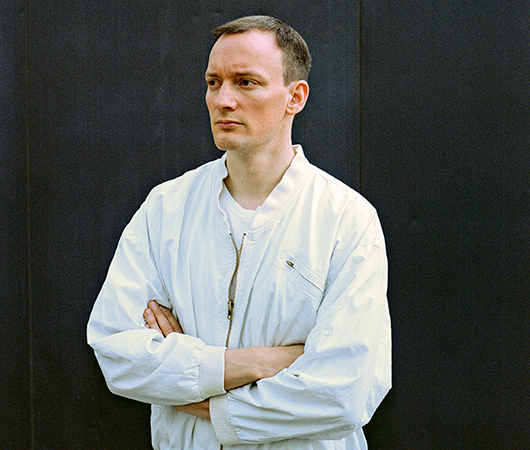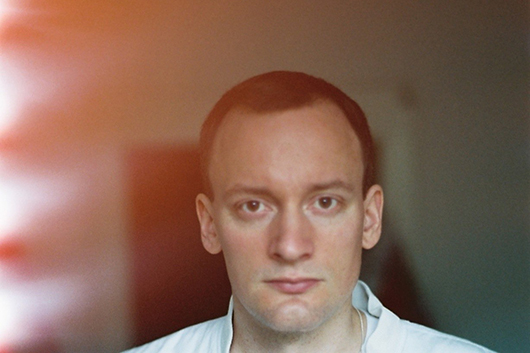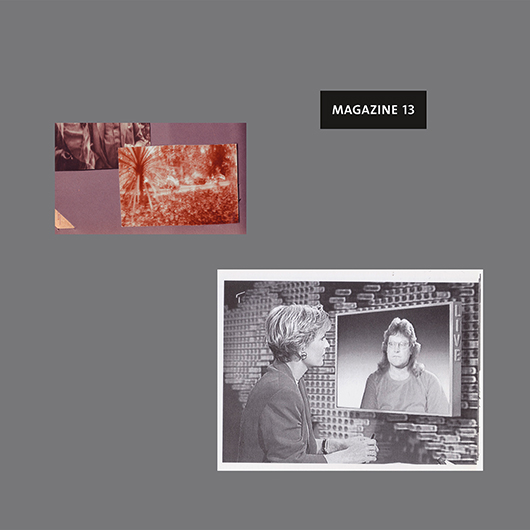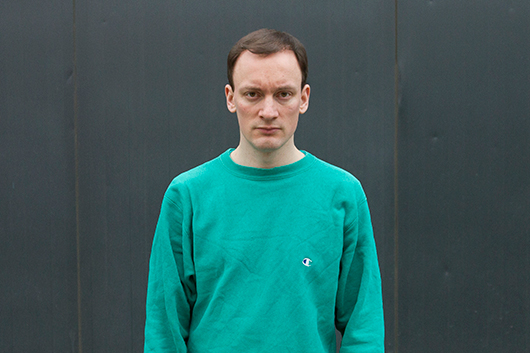The Story of Barnt: The Cologne Producer Dishes on His Debut LP, His Oddball Reputation, and His Former Life as a DMC Contender
With very little fanfare, Daniel Ansorge (a.k.a. Barnt) has become something of a standout producer […]

The Story of Barnt: The Cologne Producer Dishes on His Debut LP, His Oddball Reputation, and His Former Life as a DMC Contender
With very little fanfare, Daniel Ansorge (a.k.a. Barnt) has become something of a standout producer […]

With very little fanfare, Daniel Ansorge (a.k.a. Barnt) has become something of a standout producer over the past few years. It’s because his metallic techno, whether weird or abstract, escapist or psychedelic, always feels somewhat at odds with the norm. It’s been that way since he debuted in 2010, and is still very much the case throughout his debut album, which drops next week. (For those who can’t wait, it’s worth noting that the LP is currently streaming in full exclusively here on XLR8R.)
“I think it’s just a little misunderstanding,” says the thirty-something, wrapped in a high-necked jacket from his cozy-looking studio in Cologne. Though he excuses his poor English early on, we ultimately have no problem discussing everything from the cohesion of his imminent debut LP to Bauhaus aesthetics and plenty in between. “I just make music I feel I haven’t heard in the club before,” he says. “If I have a really good idea, obviously other people also won’t have heard this sort of thing, so they will say it’s weird, but for me, without being too arrogant, it’s just a new thing.”
That “new thing” tends to be a jarring mechanical hook, or an icy synth pattern that slithers above minimalist and metallic techno beats. If that sounds rather contrary to his Cologne locale—and the smooth techno-pop that inevitably comes to mind when thinking of that city and its defining label, Kompakt—you’d be right. Although he’s now close friends with much of that crew, it was actually back in the town of his birth, Kiel, which sits just north of Hamburg on the Baltic coast, where Barnt’s taste was fomented early on.
After going to watch a friend’s band as a teenager, he bought a tape on the way out, scratched over it at home, and then returned it, saying, “Now it’s better, let me in your band.” They did, but the group disbanded after one gig; however, the odd sounds of Wolfgang Voigt’s Gas project and his “non-traditional techno label” Profan became the members’ new pre-occupation. One could argue, then, that Barnt was into “outsider techno” 20 years before that epithet had ever been heard.

“I was into music super early,” says Ansorge, explaining that when his classmates were more into rock and grunge, he was already sneaking into clubs. “There was one techno club, it was really new back then. I was quite nerdy, I was always standing by the DJ booth asking people like Sven Väth what he was playing. I was a classic deck shark guy.” As it turns out, this sentiment hasn’t really dissipated over time; to this day, Barnt sees no division between the dancefloor and the home environment, admitting, unlike many, that he happily listens to club music at home. With that, maybe, we have something of an explanation as to why his tracks are slow burners that invite listeners to get lost in their wide-open synth patterns and slithering grooves.
For a little while, though, techno took a back seat, as Ansorge had an “episode over five years” with scratching and hip-hop. “I got so into it, it was like an affair,” he says before going on to explain that he took part in various DMC championships and was always showcasing his skills behind the decks. Far from being a distractive aside, though, becoming a turntable wizard taught Barnt some invaluable lessons. “In the DMC, you do routines,” he says, leaning in close, as he does when discussing the nitty-gritty details of his art. “It’s like juggling and live arranging. You develop a sense for the beginning, mid part, and how to arrange stuff, so it made it easier for me to get into production.”
That was around six years ago, so though it may seem like Barnt is something of a newbie talent, he has in fact been honing his craft for a while. As a DJ, of course, he goes back even further. For years, he had been playing in the local Cologne scene and occasionally in places like Dusseldorf. “I was playing weekly 12-hour bar sets, which was normal,” he laughs. “Now, people get excited about four-hour sets, but back in the day, I was playing 12 hours regularly.” The catalyst that saw him start getting international bookings, almost overnight, came around three years ago. Daphni dropped a Barnt track in his Resident Advisor podcast and not long after, “Geffen”—a track that still gets a lot of play—came out on Matias Aguayo’s Cómeme label.
The pair first met soon after Ansorge moved to Cologne. Together with another friend, Christian S, the threesome would organize special events such as “a mini festival in a snack stall in the middle of a park.” One party saw Rebolledo make his European debut and at another, Matias heard the then-unreleased “Geffen.” “He demanded the CD-R directly after I had mixed in the next track,” remembers Barnt. “He was an important part of the more alternative side of the Cologne scene. He not only called things into question (the commercial side of the business), he also took action. I could relate to that. His energy and thoughts are still very inspiring today.” Since then, quality hook-ups have come thick and fast: Fabric resident Daniel Avery has announced himself as a fan, Optimo was so taken with Barnt’s music that the duo demanded a test pressing of one of his tracks ahead of its Boiler Room set, and then Hinge Finger came calling.
“I was always a big fan of Joy Orbison and he is really open minded,” explains Ansorge. “I think he was looking over the channel for some stuff, and in my online mixes I often featured a UK track, which is something Germans don’t usually do—they usually stick to their house formula and there isn’t much crossover. But he was looking over here, I was looking back to the UK with my mixes, and so he asked me for something.”
Though more than happy to oblige, Barnt is not someone who can be rushed. With a background in art (as well as biology, which gives him an interestingly scientific and artistic approach to things), he appreciates that the creative process must not be hurried; as such, it took him over a year to send back the music that would make up the His Name EP, which was released on Hinge Finger in October of this year.
“That’s usually why I only do stuff on my own label and Cómeme,” he says. “Because I can take all the time I need. I’m quite different to many nine-to-five producers. I only go to the studio when I feel good and when I want to. I only finish tracks that are effortless. I try to keep the joy of producing like it’s a precious thing. If I was in the studio nine to five, it would be more like a job, and I think people would hear that.”
“Maybe it comes from studying arts,” he posits. “It’s obvious there that you don’t have an idea every day. But there are things you can do instead—you can go to a museum, you can read something inspiring, and maybe two weeks later, you have an idea because of that. So if you accept this, I think you are way more productive than if you sit in the studio and have to finish a track. Some of my friends say you can’t fake what you are—it’s either in you and you can transform it, or it isn’t and you have nothing.”

It’s clear there was something in him when writing Magazine 13, his debut album and a coherent piece of work Barnt made in a couple of months earlier this summer. “When I produce, I have dancefloors in mind,” he says, though the album will work as well in some back room basement as it will on headphones during a nice autumnal walk. It’s well paced, unhurried, and unfussy. Melodies slowly unfold and creep into the listener’s brain; thin, glacial keys hang above military drums; and there are shades of everything from Kraftwerk to ELO in the bleakly futuristic synth lines.
“I don’t use many effects,” admits Barnt. “I think they have a strong characteristic and in the end, you just hear the effect and not the sound source. It means people think my music is unfinished, like “Geffen,” but it’s like I read somewhere, maybe I have a Bauhaus style: things only happen when they have to. There are no ornaments. It’s like a mix between strict and raw architectures but then doing as much as possible within that.” Once again, the dichotomy of having studied both arts and science comes to the fore. Throw in the fact he played piano as a child, and loved it though was also annoyed by his own limitations (“I was really hurt that other people were better than me, I knew I could never be a concert pianist”) and the very make-up of Barnt and his creative process becomes increasingly clear.
Aside from his own music, another creative outlet for Ansorge is Magazine, the label he runs with John Harten (a.k.a. Crato) and Jens-Uwe Beyer, two old friends that actually moved with him from Kiel to Cologne in search of “a bigger city experience.” It’s a stylistically focused project, and its founders are not just strict about who and what they release, but also insist that before music is discussed, relationships must be formed. “We always felt we shouldn’t do a label unless we really knew we would add something,” says Barnt. In truth, the label almost never happened, especially once the economic crisis of 2008 kicked in and vinyl sales plummeted. A couple of years later, though, a spontaneous get together with Kompakt’s The Field, Ada from Pampa, and the original Kiel friends led to the birth of Magazine. “We were in the studio and all of a sudden, we had this really great music, so we decided we had to do the label.”

Given Barnt’s desire to never rush or force anything, he appreciates the fact that it has taken him longer than average to get to the stage where he is at. After doing various jobs and working in galleries until recently, he’s now exclusively working on music and loving it, but he doesn’t take it for granted. “I decided to never be financially dependent on my music or art,” he says. “I think that is really important—that there is no need to force it and for it to bring money in. So right now, it’s happy times as I’m earning, but if it’s not like this forever, I am prepared to work a job rather than compromise.”
As our conversation comes to a close, we ask Barnt if he’s ever as frustrated when producing techno now as he was with playing piano as a youth. “No, not at all,” he replies. “I think if you are really talented, you don’t do interesting music, you just copy what is there. I don’t even understand my own music really, so I’m happy about the limitations I have. They have become my biggest strength.”

